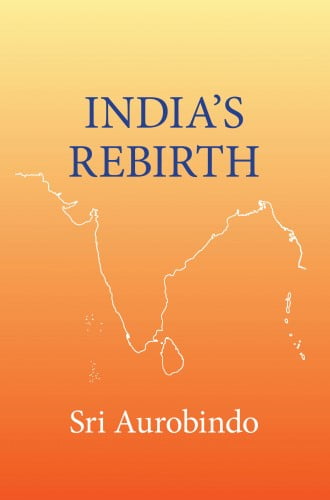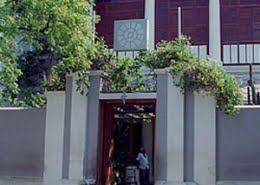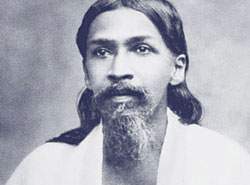India’s Rebirth
India’s Rebirth
This book presents Sri Aurobindo’s vision of India as it grew from his return from England in 1893 to his political days in the first decade of the century and finally to his forty-year-long withdrawal from public view during which he plunged into his ‘real work’ of evolutionary action.
This brief chronological selection from all that Sri Aurobindo said or wrote on India, her soul and her destiny, is by no means integral, but we trust it offers a sufficiently wide view of the lines of development Sri Aurobindo wished India to follow if she was to overcome the deep-rooted obstacles standing in the way of her rebirth.
A few notes have been added to help put the excerpts into historical perspective, and a Chronology, list of References and Index have been provided at the end of the book.
Book Details
Author: Sri Aurobindo
Print Length: 317 pages
Publisher: Sri Aurobindo Ashram
Book format: PDF, ePub, Kindle (mobi)
Language: English, French, German
Book Download
International Downloads
Contents
- I. 1893–1910
- II. 1910–1922
- III. 1923–1926
- IV. 1929–1938
- V. 1938–1940
- VI. 1940–1950
- Chronology
Book Sample
India’s Rebirth
“India of the ages is not dead nor has she spoken her last creative word; she lives and has still something to do for herself and the human peoples. And that which must seek now to awake is not an anglicised oriental people, docile pupil of the West and doomed to repeat the cycle of the occident’s success and failure, but still the ancient immemorable Shakti recovering her deepest self, lifting her head higher towards the supreme source of light and strength and turning to discover the complete meaning and a vaster form of her Dharma.”
* * *
“I write, not for the orthodox, nor for those who have discovered a new orthodoxy, Samaj or Panth, nor for the unbeliever. I write for those who acknowledge reason but do not identify reason with Western Materialism; who are sceptics but not unbelievers; who, admitting the claims of modern thought, still believe in India, her mission, her gospel, her immortal life and her eternal rebirth.”
I
1893–1910
(After thirteen years in England where he received a thoroughly Western education, Sri Aurobindo returned to India on February 6, 1893, at the age of twenty.
Bankim Chatterji’s Anandamath, which contained “Bande Mataram,” the hymn to the Motherland, had been published eleven years earlier. Swami Vivekananda had just come to the end of his first pilgrimage round India, and was preparing to sail for America. But it was going to take another dozen years for their call to their countrymen to find expression in the political field. For the present, the eight- year-old Indian National Congress, whose members were mostly drawn from the Anglicized upper classes of society, had full faith in British fair-mindedness and the “providential character” of British rule in India, and year after year swore its “unswerving allegiance to the British crown”; it was content with submitting petitions which were simply ignored by the Colonial rulers. There was another twelve years to go before the start of the open struggle for freedom in 1905, and twenty-five years before Mahatma Gandhi’s entry on the political scene in 1918.
Sri Aurobindo was twenty-one when he wrote a series of nine articles, “New Lamps for Old”, in the Indu Prakash, a Marathi-English Bombay daily; in these articles, which had to be stopped following pressures on the newspaper’s editor, Sri Aurobindo took stock of the prevailing situation and launched into a detailed and forceful criticism of the “mendicant policy” of the Congress. A few extracts:)
* * *
We cannot afford to raise any institution to the rank of a fetish. To do so would be simply to become the slaves of our own machinery.
August 7, 1893
* * *
Our actual enemy is not any force exterior to ourselves, but our own crying weaknesses, our cowardice, our selfishness, our hypocrisy, our purblind sentimentalism.
August 21, 1893
* * *
I say, of the Congress, then, this — that its aims are mistaken, that the spirit in which it proceeds towards their accomplishment is not a spirit of sincerity and whole-heartedness, and that the methods it has chosen are not the right methods, and the leaders in whom it trusts, not the right sort of men to be leaders; — in brief, that we are at present the blind led, if not by the blind, at any rate by the one-eyed.
August 28, 1893
* * *
To play with baubles is our ambition, not to deal with grave questions in a spirit of serious energy. But while we are playing with baubles, with our Legislative Councils, our Simultaneous Examinations1, our ingenious schemes for separating the judicial from the executive functions, — while we, I say, are finessing about trifles, the waters of the great deep are being stirred and that surging chaos of the primitive man over which our civilised societies are superimposed on a thin crust of convention, is being strangely and ominously agitated.
December 4, 1893




